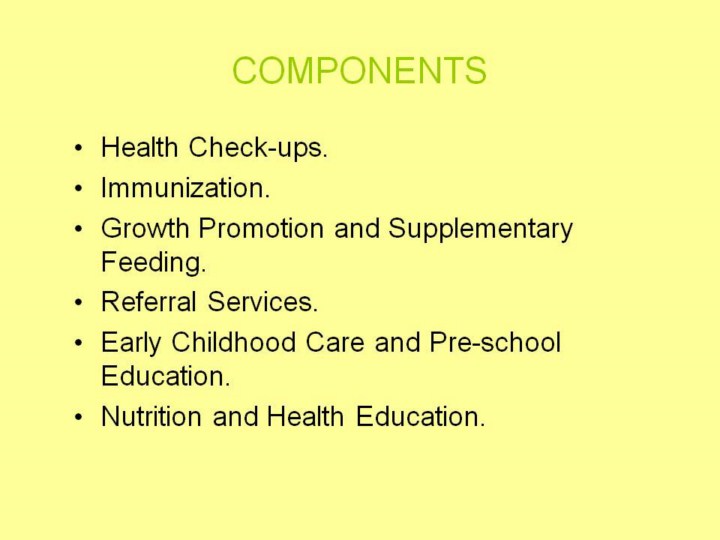 |
The
Non-formal Pre-school Education (PSE) component of the ICDS may well be
considered the backbone of the ICDS programme, since all its services
essentially converge at the anganwadi – a village courtyard. Anganwadi
Centre (AWC) – a village courtyard – is the main platform for delivering of
these services. These AWCs have been set up in every village in the country.
In pursuance of its commitment to the cause of India’s Children, present
government has decided to set up an AWC in every human habitation/
settlement. As a result, total number of AWC would go up to almost 1.4
million. This is also the most joyful play-way daily activity, visibly
sustained for three hours a day. It brings and keeps young children at the
anganwadi centre - an activity that motivates parents and communities. PSE,
as envisaged in the ICDS, focuses on total development of the child, in the
age up to six years, mainly from the underprivileged groups.
Its programme for the three-to six years old children in the anganwadi is
directed towards providing and ensuring a natural, joyful and stimulating
environment, with emphasis on necessary inputs for optimal growth and
development.
The early
learning component of the ICDS is a significant input for providing a sound
foundation for cumulative lifelong learning and development. It also
contributes to the universalization of primary education, by providing to
the child the necessary preparation for primary schooling and offering
substitute care to younger siblings, thus freeing the older ones –
especially girls – to attend school
|
